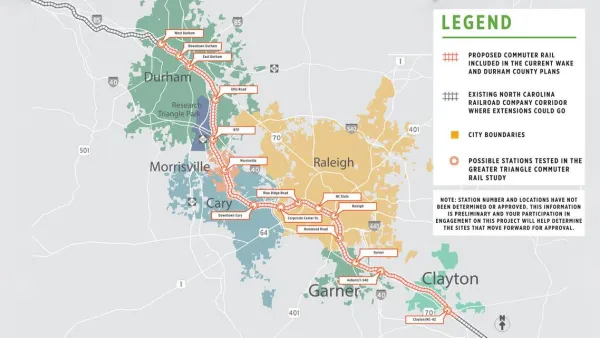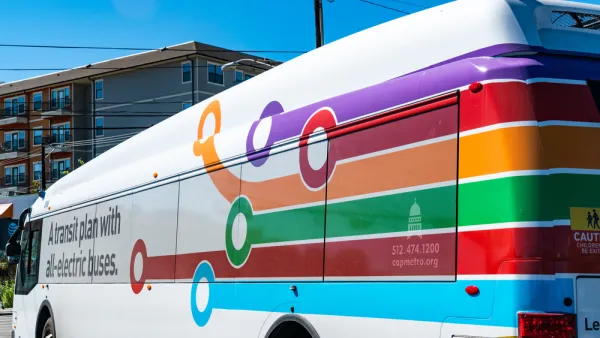A four-part series explores the shortcomings of transit politics and planning in Wichita, Kansas.

"Wichita is far behind peer cities in the provision and use of public transit," reports Chase M. Billingham.
The sluggish pace of Wichita's transit funding isn't due to car culture, which is also present in other similarly sized cities, notes Billingham. "The true source of divergence is funding. Wichita Transit is severely underfunded, even compared to its peers in nearby car-friendly cities such as Omaha, Oklahoma City and Tulsa."
Data from the U.S. Department of Transportation shows Wichita Transit receiving approximately $4.2 million in local funds in 2017. "By comparison, local agencies that year received $7.4 million in Tulsa, $14.1 million in Oklahoma City, $14.5 million in Omaha, $15.4 million in Des Moines and $70.4 million in Kansas City," according to Billingham.
Local leaders are looking for new sources of revenue to fund transit projects, but a frequently floated idea of implementing a dedicated local sales tax has never been made a reality.
"Transit was one of four priorities that the city identified when it held a referendum on imposing a new 1-cent sales tax in 2014. Amid well-funded opposition and much controversy, that referendum was decisively rejected by voters."
The article is the third in a four-part series of guest commentaries on the subject of transit funding and planning in the city of Wichita.
FULL STORY: Wichita spends far less on public transportation than its peers — that has to change

National Parks Layoffs Will Cause Communities to Lose Billions
Thousands of essential park workers were laid off this week, just before the busy spring break season.

Retro-silient?: America’s First “Eco-burb,” The Woodlands Turns 50
A master-planned community north of Houston offers lessons on green infrastructure and resilient design, but falls short of its founder’s lofty affordability and walkability goals.

Delivering for America Plan Will Downgrade Mail Service in at Least 49.5 Percent of Zip Codes
Republican and Democrat lawmakers criticize the plan for its disproportionate negative impact on rural communities.

Test News Post 1
This is a summary

Test News Headline 46
Test for the image on the front page.

Balancing Bombs and Butterflies: How the National Guard Protects a Rare Species
The National Guard at Fort Indiantown Gap uses GIS technology and land management strategies to balance military training with conservation efforts, ensuring the survival of the rare eastern regal fritillary butterfly.
Urban Design for Planners 1: Software Tools
This six-course series explores essential urban design concepts using open source software and equips planners with the tools they need to participate fully in the urban design process.
Planning for Universal Design
Learn the tools for implementing Universal Design in planning regulations.
EMC Planning Group, Inc.
Planetizen
Planetizen
Mpact (formerly Rail~Volution)
Great Falls Development Authority, Inc.
HUDs Office of Policy Development and Research
NYU Wagner Graduate School of Public Service





























